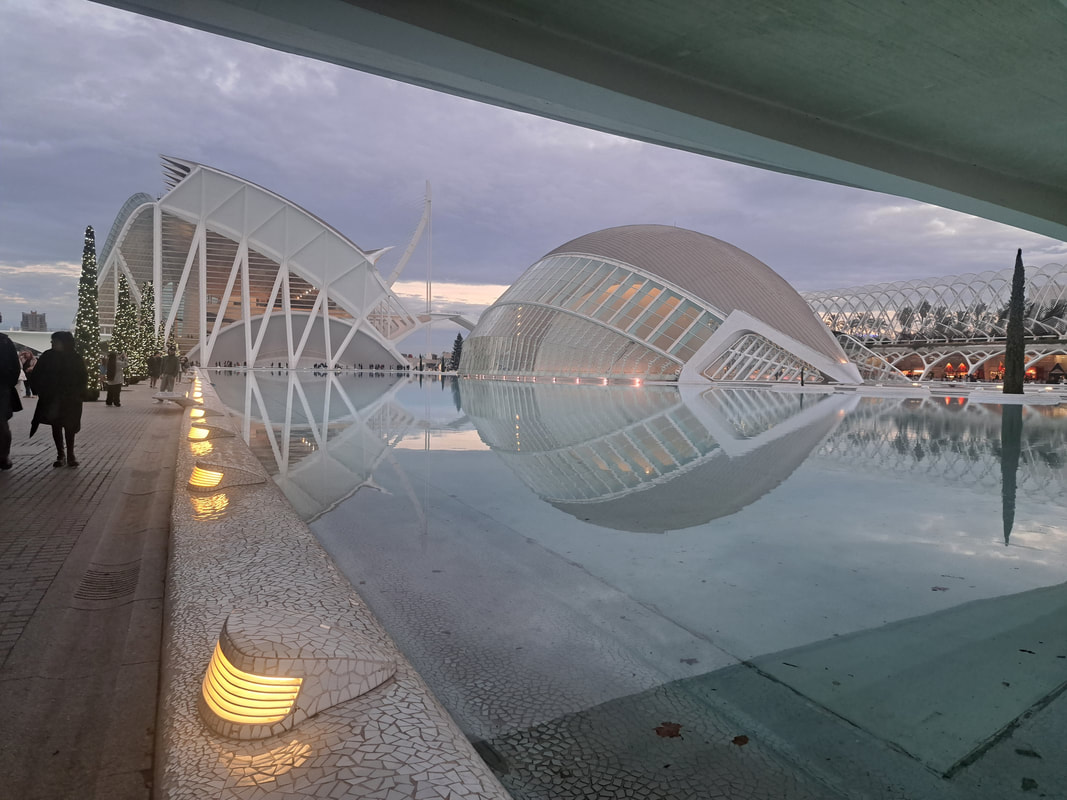|
When planning a family gap year in Spain, with non-EU passports, navigating through the myriad of visa options available can be pretty daunting. Spain offers several types of visas that cater to different needs and circumstances, including the Non-Lucrative Visa, Digital Nomad Visa, Study Visa, and Golden Visa. Each of these visas has its own set of requirements, benefits, and limitations, making it crucial to understand which one aligns best with your family's situation. In this blog entry, we'll explore these options to help you make an informed decision.
Non-Lucrative Visa The Non-Lucrative Visa is ideal for families looking to spend a year or more in Spain without engaging in any professional activity. This visa requires proof of sufficient financial means to support the family for the duration of the stay without working. It's perfect for those who have savings or a steady passive income. The main advantage is the ability to enroll children in Spanish schools, fully immersing them in the local culture and language. The visa is first granted for one year, then two and two years, leading the path to permanent residency. However, the inability to work legally in Spain could be a drawback for some. Digital Nomad Visa Introduced to attract remote workers and digital entrepreneurs, the Digital Nomad Visa is a fantastic option for families where one or both parents work online. It allows individuals to live in Spain while working for non-Spanish companies. To qualify, applicants must prove they have a stable income from remote work and the proper qualifications and/or experience. This visa combines the benefits of living in Spain with the flexibility of remote work, making it a great choice for digital nomad families. However, it's essential to check the specific income requirements and ensure your employment situation qualifies. We paired up with teams of experts with a very high success rate. Study Visa If learning Spanish is central to your gap year plan, the Study Visa might be the right choice. This visa is applicable when a family member enrolls in a full-time educational course in Spain, such as a language course or a degree program. If applying from outside Spain, dependents are allowed to accompany the primary applicant. This visa is an excellent way to stay in Spain without having high savings. The study visa even allows the principal applicant to work 20 hours a week. However, it's important to note that the study program must meet certain criteria (The language school must be a recognized Cervantes center, and studies must be a minimum of 20 hours a week). Golden Visa The Golden Visa is aimed at non-EU investors, offering a path to residency in Spain through significant financial investment, such as purchasing real estate worth at least €500,000. This visa is suitable for families with the means to make such an investment and looking for a longer-term option that also paves the way to residency. The Golden Visa grants flexibility in terms of living and working in Spain and has attractive tax terms for those seeking to invest in the Spanish real estate market or other qualifying investments. Which One is Suitable for Your Family? Choosing the right visa depends on your family's specific needs, financial situation, and long-term plans. The Non-Lucrative Visa might be the best fit if you're looking for a sabbatical year without working. For families with remote working parents, the Digital Nomad Visa offers a balance between work and immersion in Spanish culture. The Study Visa is ideal for those prioritizing education, while the Golden Visa suits families ready to make a significant financial investment in Spain. Before making a decision, it's crucial to consider the financial implications (on the tax side, too), the length of stay you're planning, and how each visa aligns with your family's goals for the gap year. Consulting with a legal expert specializing in Spanish immigration law can also provide valuable guidance tailored to your specific circumstances. Don't hesitate to reach out to us for advice.
0 Comments
 If you are planning to register your children for school in Andalusia, you should be aware that the process, the same for public (Público) or charter schools (Concertado), involves several steps. In this guide, we will take you through the enrollment process. Check our previous post if you need to understand how the Spanish education system works
Key Steps to Register Your Children at School in Andalusia:
5. Submit the Application: Applications can be submitted online through the official Andalusian educational portal if you have a Spanish digital signature or otherwise directly at the school you listed first on your application. The education department recommends putting down a list of five school options. 6. Wait for Confirmation: After submitting your application, there will be a waiting period while applications are processed. By mid-May, schools will then publish the list of accepted children. 7. Finalize Enrollment: Once accepted, you'll need to finalize the enrollment by submitting any additional documentation requested by the school. It will be in June for primary education and in July for secondary education. You'll be asked about any health issues (allergies), to sign authorization documents (for the school to use your children's image on their social media, to take your children on field trips or to the emergency room), and to choose between a weekly class of religion or ethics values. Conclusion: Registering your children in state or charter schools in Andalusia requires careful planning and attention to detail. By understanding the educational system, preparing the necessary documents, and choosing the right school for your child, you can ensure a smooth transition to their new educational environment Remember, the key to a successful registration process is starting early and staying informed. Ask "Your Year in Spain" about their "Education package" to help you at each stage of the process. As families around the globe seek meaningful and enriching experiences to share together, Spain emerges as a top contender for those considering a sabbatical year abroad. Renowned for its vibrant culture, stunning landscapes, and rich history, Spain offers an unparalleled setting for families looking to explore, learn, and grow together. Here's why Spain stands out as an exceptionally kid-friendly country, making it an ideal choice for a family sabbatical year.
1. Diverse Cultural Experiences: Spain is a mosaic of cultures, each with its own traditions, festivals, and culinary delights. From the flamenco dancers of Andalusia to the futuristic architecture of Valencia, Spain offers a kaleidoscope of cultural experiences that can captivate children and adults alike. Families can join in the festivities of local fiestas, such as the world-famous La Tomatina in Buñol, where participants engage in a friendly tomato fight, or the vibrant Feria de Abril in Seville, which celebrates Andalusian culture with music, dance, and traditional attire. 2. Educational Opportunities: A sabbatical year in Spain is not just a break from routine; it's an immersive learning experience. Spain's rich history is evident in its castles, cathedrals, and museums, offering endless educational opportunities for children. Visiting the Alhambra in Granada, the Sagrada Familia in Barcelona, or the Prado Museum in Madrid can bring history and art to life in ways that books and classrooms cannot match. Moreover, living in Spain allows children to learn Spanish, the second most spoken language in the world, through daily immersion and interaction, an invaluable skill in today's globalized society. 3. Outdoor Adventures: For families who love the great outdoors, Spain is a playground waiting to be explored. From the snow-capped peaks of the Pyrenees to the pristine beaches of the Costa Brava, Spain offers a wide range of outdoor activities suitable for all ages. Whether it's hiking in the national parks, kayaking along the coast, or skiing in the Sierra Nevada, Spain provides ample opportunities for families to stay active and connect with nature. 4. Child-Friendly Amenities: Spain is a country that embraces children, making it particularly welcoming for families. Restaurants and cafes often cater to young diners with kid-friendly menus and play areas. Public transportation is accessible and accommodating to families, with discounts for children and facilities for strollers. Additionally, Spain boasts numerous parks, playgrounds, and public spaces where children can play and socialize, reflecting the society's family-oriented values. 5. Affordable Cost of Living: Compared to other Western European countries, Spain offers a relatively affordable cost of living, which is an important consideration for families planning a sabbatical year. Housing, food, and transportation costs are generally lower, allowing families to enjoy a high quality of life without breaking the bank. This affordability also means that families can travel more extensively within the country, experiencing its diversity to the fullest. ConclusionTaking a sabbatical year in Spain presents families with a unique opportunity to bond, learn, and create memories that will last a lifetime. The combination of cultural richness, educational opportunities, outdoor adventures, child-friendly amenities, and an affordable cost of living makes Spain an ideal destination for families seeking an enriching sabbatical experience. So, pack your bags, embrace the spirit of adventure, and set off for a year of discovery in the kid-friendly country of Spain. |


 RSS Feed
RSS Feed



